Catholic Radio Host Says Enola Holmes Is “The Most Evil Movie To Ever Be Made”

In a year of rather disappointing movies and even more disappointing television, a prominent Catholic radio host has declared that Netflix’s Enola Holmes is “the most evil movie to ever be made.”
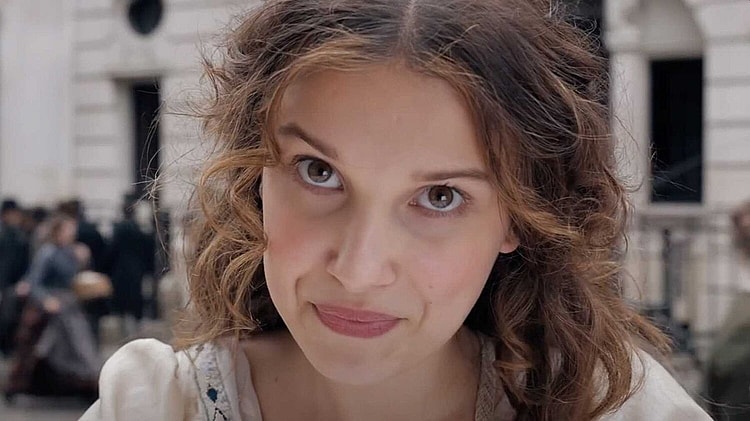
When you look back on 2020 and think of the worst movies, in terms of quality, disappointment is a term that’s quick to come to mind.
Between pictures such as Fantasy Island, Wonder Woman 1984, and Bloodshot, the year was also plagued by moments of cinematic cringe, such as the revelation of John Constantine and King Shark’s romantic history in Justice League Dark: Apokolips War and the alleged scrapped Birds of Prey subplot concerning Black Mask nude photos being contained in the diamond swallowed by Cassandra Cain.
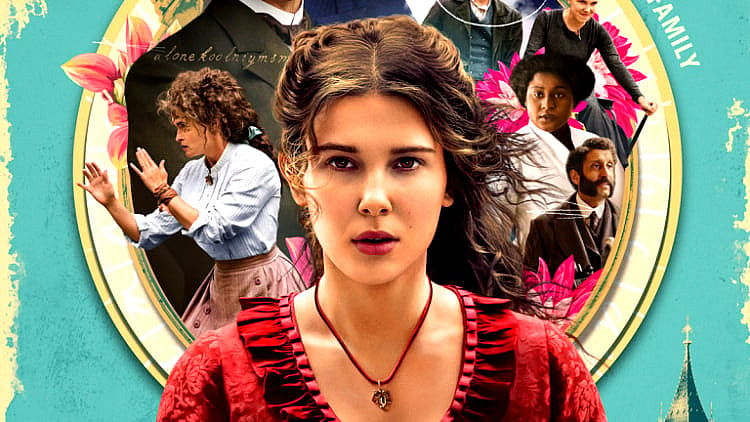
Related: Historical Figure Anne Boleyn Gets Race Swapped In Channel 5’s Upcoming Miniseries
However, when talking about the most “evil” movie of 2020, you’re having a totally different discussion, steeped in morals rather than artistic subjectivity.
Unsurprisingly, last year saw its fair share of such discussions as well. Netflix courted controversy with the French film Cuties, as did HBO Max with the abortion-themed road trip movie Unpregnant.
Both movies were slammed for their subject matter, with the latter even being called out specifically by MMA fighter-actor Bas Rutten, who asserted that it was made solely to incite scandal.

While these two films are at the forefront of many conversations debating the morality of their messages, another case was recently made against a highly-rated and well-received Netflix production from late last year: Enola Holmes. Unlike Cuties, it became one of the service’s most popular movies of 2020.
Despite the film receiving praise for its acting, casting, story, and its suitability for most age groups, Catholic Answers Live host Cy Kellett has revealed that he is not a fan of the film. During a January episode of his show, Kellett explained that he believes Enola Holmes to be “the most evil movie” of not only 2020, but all time.
Related: Robert Downey Jr. Planning Sherlock Holmes Cinematic Universe For HBO Max
Kellett discussed the movie with his co-host, Marie Bates, and they agree it is “extremely well-made” and “very glamorous.” Said Bates, “It’s beautifully shot. The colors are amazing in it. The costumes are amazing. When they go from scene to scene, they have all of these very Sherlock Holmes-feeling transitions and everything. It’s really a fun movie.”
However, Kellett pushed back against his co-host’s assertion and stated that Enola Holmes’ allure is “part of its evilness.” He explained that, Catholics whether converted or born into the faith, “At Easter, when we do our rejection of evil, we reject the glamor of evil, and that’s what this [is].”

Though he offered compliments to the cast – especially stars Millie Bobby Brown, Henry Cavill, and Helena Bonham Carter – and admitted that he liked the film’s pacing, Kellett noted that he was taken aback by the film’s view of women and womanhood, especially as it was being conveyed to young girls. “But here’s my problem with it,” Kellett stated. “As I watched it, it is the sickest view of women I have ever seen portrayed on film, portrayed in a way that is meant, intentionally meant, to attract young girls.”
Bates added that she realized the movie has an agenda, which both she and Kellett describe as a “a brutal form of feminism,” as “the heroine is a heroine in part because she abandons her daughter.”
“This is part of the attraction of her is that she’s on a more noble quest than being a mother,” Kellett said of Helena Bonham Carter’s Eudoria Holmes. “And that everything about this movie is designed to actually denigrate motherhood and any kind of traditional kind of femininity.”
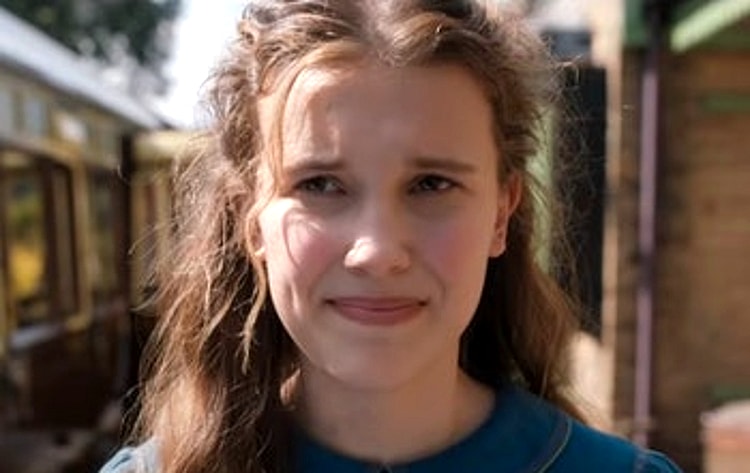
He continued, “The idea that the feminine is different than the masculine is utterly attacked. And I mean attacked. It’s intentional. The background of the movie, behind everything, all the action, is the suffragette movement.”
Kellett and Bates acknowledge the historical importance of the narrative’s main struggle but disapproved of the “horrible means” Enola’s mother and her secret group employ in service of the plot. “She’s kind of the hero that you don’t see in the movie. She’s like the MacGuffin,” said Kellett of the implication the mother is a terrorist. “She’s the missing mother, and she’s apparently willing to blow people up to get the vote. She’s clearly willing to be violent and to abandon her daughter.”
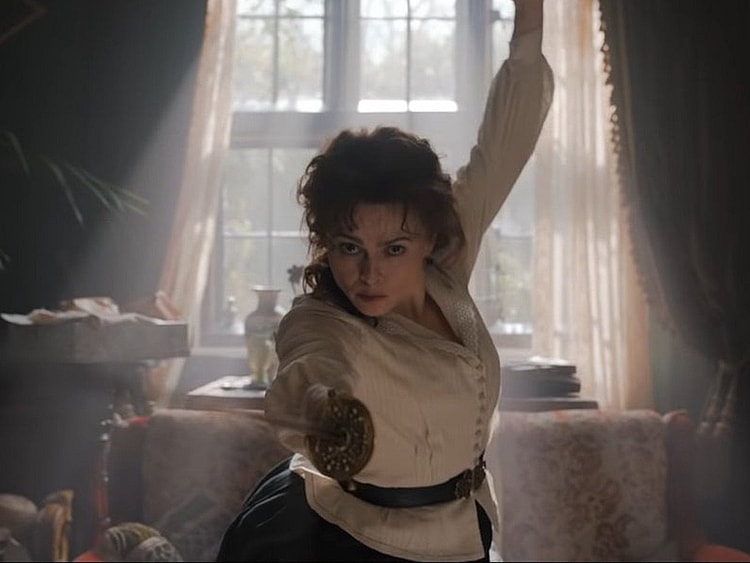
He added, “And she just teaches her daughter horrible things. And all this is presented to us as good,” with Bates chiming in that this message is what will draw people into the film, though it presents, in Kellett’s words, “a twisted view of what men and women are and how men and women relate to one another.”
Bates then confessed that she took issue with a separate view the film holds related to both sides of women’s suffrage, saying it failed in representing them even-handedly or as stable.
“So on both sides of this issue, we have psycho women who are willing to sacrifice their children and grandchildren for what they believe to be the most important cause,” she explained. “when you throw like the dignity of life out the window and you say, ‘I’m going to sacrifice my kid for this, I’m going to, for the good of all.’ Well, sorry. You just sacrificed your kid. Now they don’t have this future.”

On the other side is Enola’s supposed love interest, Tewkesbury (Louis Partridge), whom the hosts classify as “very feminine,” noting that “the [gender] roles are reversed” as he “needs rescuing constantly.” Mostly, this rescue is need from his grandmother, The Dowager (Frances de la Tour), who is trying to keep the boy from voting for suffrage in the House of Lords.
What makes her evil in the eyes of the movie, Kellett clarified, is how “she’s a traditionalist. She believes in traditions.” He added, “Anyone who believes in anything traditional, anyone who has a modicum of old fashioned-ness about them is evil in this movie, especially the grandma, who’s willing to murder her grandson.”

Circling back back to Enola’s avant-garde education and abandonment by her mother, wherein Enola is taught everything – judo, archery, science – except needling or any girly things, Kellett and Bates declare that they find Enola’s upbringing to be equally strange and anathematic. “She’s not being taught needlework,” said Bates. “She’s being taught all of this stuff. And yet, her mom abandons her when she’s still a kid.”
Kellett then dovetails the conversation, pointing out how Enola is brought up and educated in an isolated manor with few around besides a servant. “Like, this is a good education, to hide you from the world, in this secret education, where I give you all this resentment towards other people-” Kellett said, with Bates adding that it felt as if Enola had been raised to be an assassin.
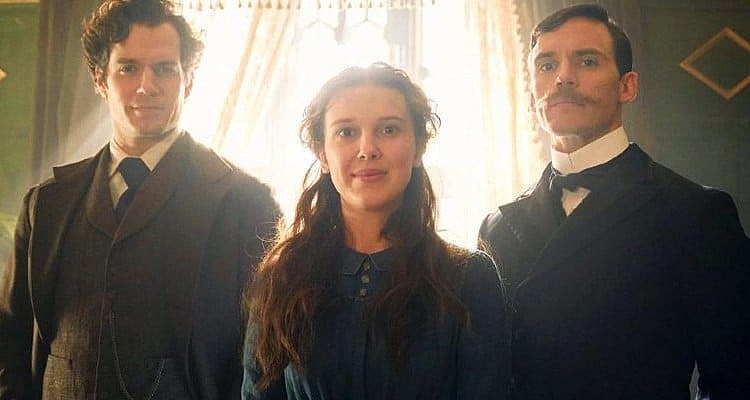
Bates also turns to the way the film portrays Enola and Sherlock’s less-famous brother Mycroft (Sam Claflin) who advocates a normal Victorian upbringing for his sister. “Like, what do you want for your daughter? Do you want her to be able to vote? Or do you want her to be able to attack people?” Bates wondered. “And then like on the flip side of that, her brother, Mycroft, is seen as this horrible person, because he wants her to go to school with other girls.”
The quality of schools back then in reality aside, which they touch upon, Kellett and Bates determined Enola is “educated to be antisocial”, despite it being blithely depicted as a positive. “But she shouldn’t be alone in a house, with one maid there, to make sure she stays alive,” said Bates. “She’s a kid. She’s not supposed to be figuring out her own life yet.” Meanwhile, Kellett took issue with how the adult women are cast as evil for educating girls properly.

His “fundamental problem” with the picture is that it’s a piece of propaganda which aims to prey on children’s impressionability in order to attack “girlhood,” womanhood, tradition, community, and the value of motherhood. “Like your real womanhood is rooted in being suspicious of everybody else’s motives and doing whatever the hell you want to do,” Kellett said. “That’s what real womanhood is [to the filmmakers].”
“Part of the reason why this movie struck me is there’s not a single example of any tradition, whether it’s Mycroft, or the mother, or the headmistress at the school, or the grandma,” he continued. “Nobody who’s a traditional person…is good. They’re all…secretly evil,” while people like the mother, “no matter how cruel,” are seen as good.
Kellett further added, “And all of it is sold because little girls love romance. And there’s a little Prince Charming in this for the little princess in the movie, and he’s very feminine and he’s…kind of harmless and safe.”

Related: Updated Godzilla vs. Kong Cast List Reveals More Plot Details and Truth About Apex
“To me, it’s poison for little girls,” he said. “You’re going to take what is normal, our romantic attractions to one another and our desire for one another, and you’re going to use that as the tool to say, ‘Don’t trust anybody, be isolated, be a nasty little piece of work. And that’s what makes you a true woman’.”
Kellet, pointing out how Hollywood has been obsessed with edgy female characters for at least two decades, asserts that Enola was taken down that route.
“And I think this fierceness of among girls, this is all the rage now is this, and it has been for about 20 years,” he said. “And everyone thinks they’re … all of these innovators in Hollywood selling a new thing. I’m sorry, it’s not new. It’s not brave. It’s the same old trash you’ve been selling, and it hurts girls. They end up brokenhearted and hurt.”

Bates, in turn, took issue with how everybody pushed Enola to be “fierce” and self-reliant, only to be deliberately desert her in a bustling, dangerous city like London not once, but twice.
“She shouldn’t be doing London by herself,” declared Bates. “She should be in school still, and she should have people who love her, who can support her and make her feel secure. Why does she need to be a 30-year-old?”
Kellet would add, “The abandonment of the child is presented as a heroic act in this movie, and the child is not fully actualized until they accept that their mother abandoning them was a heroic thing. And they have to be a person like that. They have to be this kind of person.”
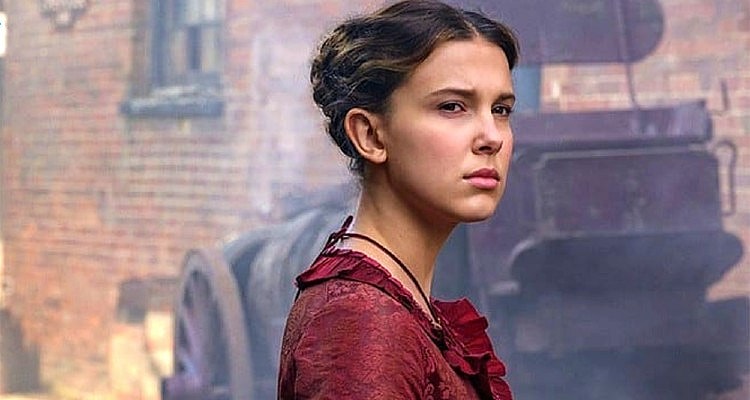
Related: Did Dany Garcia Confirm Henry Cavill’s Return for Man of Steel 2?
Bates found the “fierceness” the movie to be shallow and “something that it’s not,” adding that women can be strong without mimicking men.
“And the truth is that women were incredibly strong before they started selling this,” she said. “Women have given childbirth for all of human civilization. Women have done amazing things for all of time. They’re incredibly strong. We don’t need to make them men to make them appear strong.”
Bates also speaks to how marriage, like feminity, is similarly portrayed as something undesirable, lamenting, “I think that it’s such a shame that a huge focus of the movie and what they make sound evil is that they’re preparing her for marriage.”
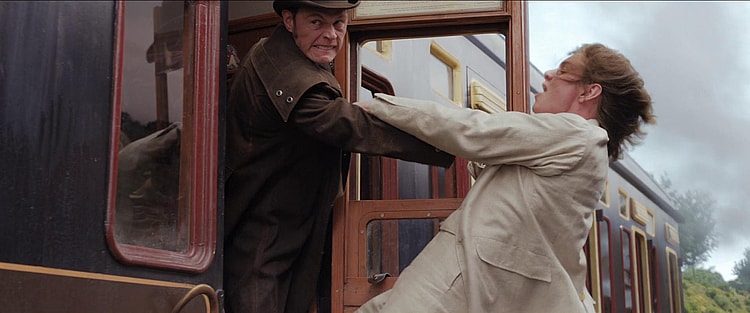
“There’s a great conspiracy towards the end of marriage, because marriage is the greatest good, because family is the most important thing in the world,” Kellett observed. “But we’re having a romance without marriage here.”
Bates added a little later none of the beauty, altruism, or change brought on by marriage is talked about, to which Kellett replied, “No, there is no heroism in marriage in this,” nor in the notion of being “married and stay married,” nor in serving one’s children.
Bates then reacted to how instead of marrying Tewkesbury, Enola instead leaves him with the parting words, “I’ll let you know when I’m going to see you next.”
“And so, we end the movie feeling like we don’t know what her future is going to be,” said Bates. “We don’t know if she’s going to be safe. We don’t know if she’s going to end up exactly like her mother, but she’s probably not…going to get married and have children.”

Related Rumor: Ava DuVernay’s New Gods May Cast Kathy Bates as Granny Goodness
Kellett then offered an old common-sense solution, stating that parents should responsibly and critically “look at Netflix and go, ‘Netflix is selling propaganda,'” to kids and adults, and see Enola Holmes “had an agenda in mind, which was to present what they see as a very elevated view of womanhood, which in fact is a grotesque kind of imitation of womanhood that means the world does not have to change to become fit for women.”
He says the movie embraced women changing their nature, which the suffragettes did not do because “That’s evil,” adding that he felt “there’s a sense that this is just so calculated, propagandistic, and it’s sold as art. And it’s very well-made. It’s like a TV commercial.”
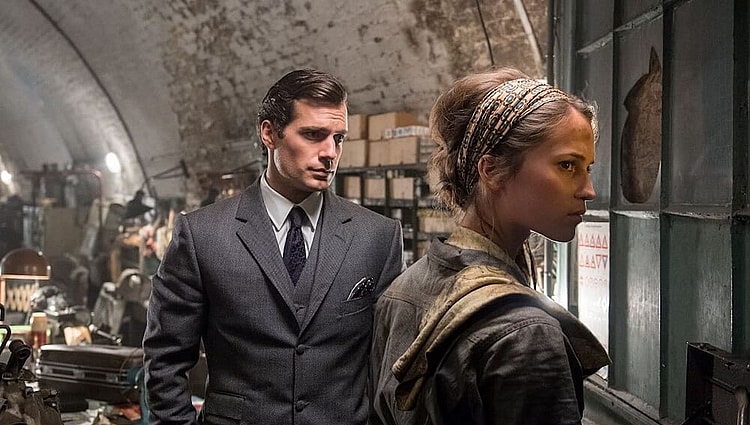
From there, Kellett admits he’s against advertising to children under 16, as was the law in the United States prior to the 1980s. Today’s parents, he says, turn their children “over to people who are professionals at creating stories that tempt them away from just being a normal person, that tempt them into this, ‘I’ve got to do this, and I’ve got to do that’.”
Due to these films, Kellett opined, young people in their twenties who don’t want marriage are unsatisfied and anxious they haven’t, in a sense instead, become an unbeatable superhero with mad judo skills. “And you end up with a generation of young women who are batty with anxiety, just terrorized with anxiety,” Kellett said.
Wrapping up, Bates said she won’t play Enola Holmes in her house or in front of her kids, and notes that she has a similar embargo on most Disney movies. Kellett does as well, but it’s best to save his extensive opinions on Disney for another time.
Related: The Witcher’s Henry Cavill To Star In Sherlock Holmes Film With “Dynamic New Female Twist”
The best thing Keleltt and Bates could say about Enola Holmes is it’s a missed opportunity to create a new female detective who “can partake in a mystery and not be this character.”
Perhaps that’s true, but Enola Holmes is relatively tame compared to everything else put out in 2020, especially in light of the recent Hollywood trend towards wokeness and worsening debauchery. In comparison, the outrage at Enola for its themes is almost quaint.
So, if you made it this far, let us know in the comments below or on social media if you agree with Catholic Answers’ assessment of Enola Holmes!
